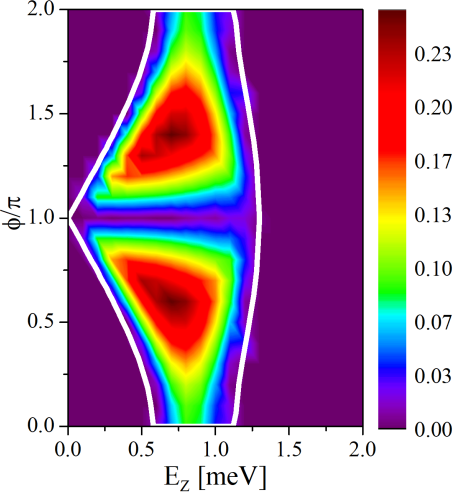Tuning topological superconductivity in phase-controlled Josephson junctions with Rashba and Dresselhaus spin-orbit coupling

Abstract
Recently, topological superconductors based on Josephson junctions in two-dimensional electron gases with strong Rashba spin-orbit coupling have been proposed as attractive alternatives to wire-based setups. Here, we elucidate how phase-controlled Josephson junctions based on quantum wells with [001] growth direction and an arbitrary combination of Rashba and Dresselhaus spin-orbit coupling can also host Majorana bound states for a wide range of parameters as long as the magnetic field is oriented appropriately. Hence, Majorana bound states based on Josephson junctions can appear in a wide class of two-dimensional electron gases. We study the effect of spin-orbit coupling, the Zeeman energies, and the superconducting phase difference to create a full topological phase diagram and find the optimal stability region to observe Majorana bound states in narrow junctions. Surprisingly, for equal Rashba and Dresselhaus spin-orbit coupling, well localized Majorana bound states can appear only for phase differences ϕ≠π as the topological gap protecting the Majorana bound states vanishes at ϕ=π. Our results show that the ratio between Rashba and Dresselhaus spin-orbit coupling or the choice of the in-plane crystallographic axis along which the superconducting phase bias is applied offer additional tunable knobs to test Majorana bound states in these systems. Finally, we discuss signatures of Majorana bound states that could be probed experimentally by tunneling conductance measurements at the edge of the junction.